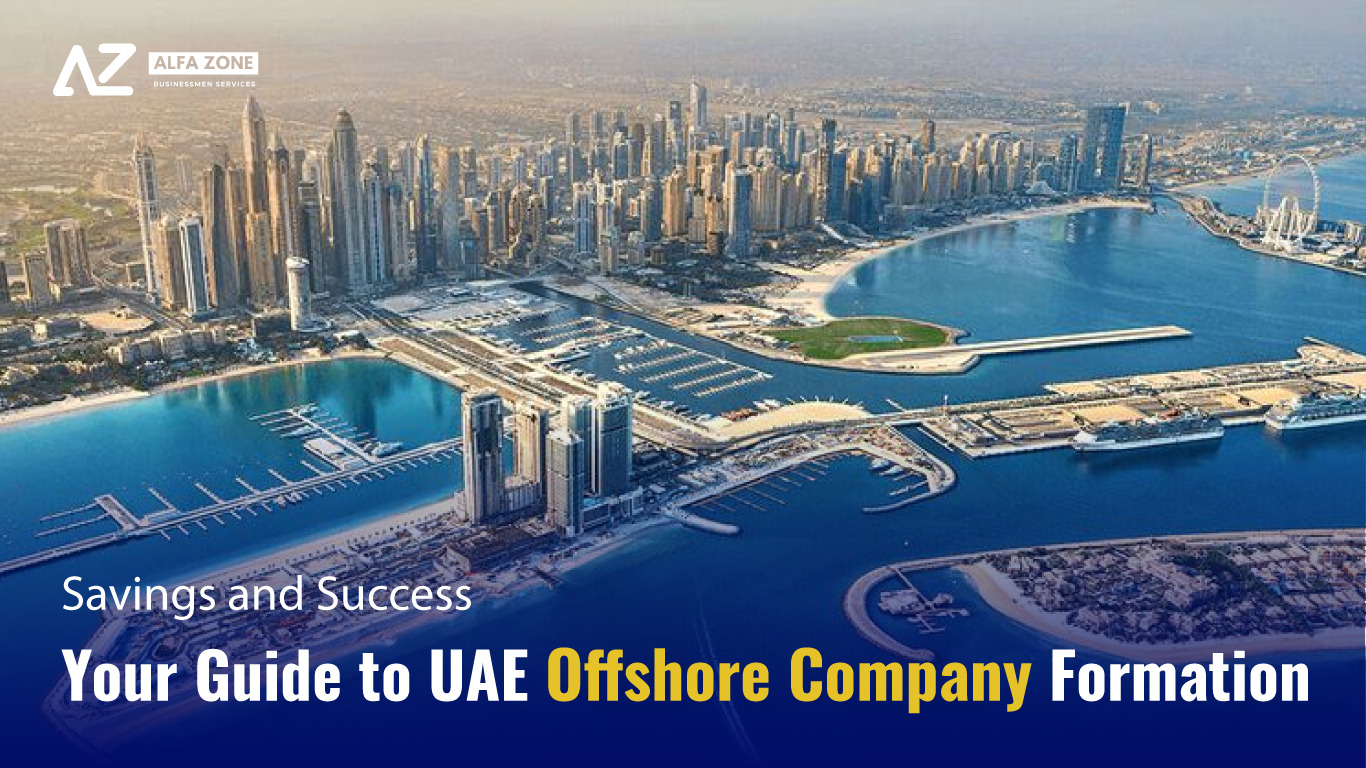What Every Entrepreneur Should Know About offshore company formations Before Registering
Recognizing the Process of Offshore Firm Formations: A Step-by-Step Guide
Offshore business formations entail a collection of methodical actions that require careful consideration. Selecting the best territory is important, as it impacts lawful conformity and tax benefits. Following this, one have to choose an appropriate firm framework and prepare necessary paperwork. Each stage provides its own obstacles and details, making it vital to comprehend the process completely. The intricacies of keeping compliance and steering via policies will quickly end up being noticeable.
Picking the Right Territory
When picking a jurisdiction for overseas company formation, how does one figure out the most suitable option? Different elements must be considered to ensure optimal benefits. Mostly, prospective company owner must examine the jurisdiction's online reputation and security. A well-regarded area improves integrity and might draw in capitalists. Furthermore, tax obligation plans play a substantial role; some territories supply favorable tax obligation rates or exemptions, making them appealing for lasting monetary planning.Legal and regulative frameworks are likewise essential. A jurisdiction with simple conformity processes can help with smoother operations. Additionally, the availability of professional solutions, such as legal and audit support, can simplify continuous management.Lastly, geographical factors to consider, including time area compatibility and availability, should not be neglected. By examining these necessary aspects, entrepreneurs can make informed decisions, selecting the jurisdiction that lines up best with their particular company objectives and operational demands.
Recognizing Lawful Needs
Comprehending the lawful needs for overseas business development is crucial for entrepreneurs looking for to browse the complexities of worldwide business. Each jurisdiction has its own details regulations and compliance commitments that need to be complied with for an effective setup. Key factors to consider include registration procedures, resources requirements, and continuous coverage tasks. Entrepreneurs should likewise know taxes implications and any type of possible dual taxation treaties between their home nation and the offshore jurisdiction.Additionally, it is essential to understand the regional legislations bordering business operations, including labor regulations and licensing demands. Failing to abide by these lawful terms can result in penalties, including penalties and even dissolution of the firm. Because of this, looking for lawful support or talking to a specialist company focusing on offshore formations can assist ensure that all legal requirements are fulfilled, eventually facilitating a smoother establishment and operation of the offshore entity.

Choosing Business Structure
When selecting a firm structure for offshore formations, people have to think about different kinds offered, each offering unique benefits. Legal considerations and compliance needs play a vital function in determining one of the most ideal choice. Furthermore, comprehending tax obligation ramifications and advantages can substantially affect the decision-making process.
Kinds Of Company Structures
Selecting the ideal company structure is an essential choice that can considerably affect the operations and tax obligations of an offshore business. There are numerous kinds of business frameworks available for factor to consider, each with its unique advantages and disadvantages. One of the most typical frameworks consist of restricted responsibility business (LLCs), which supply liability security and adaptability in administration; companies, which provide solid possession defense and can draw in capitalists; and partnerships, which enable for shared duties and profits amongst partners. Furthermore, single proprietorships are an alternative for people looking for full control yet with individual obligation. Comprehending these frameworks aids business proprietors make informed choices that align with their goals and operational demands while enhancing tax obligation efficiencies.
Lawful Factors To Consider and Conformity
Just how can organization proprietors assure they fulfill lawful requirements while picking an overseas business framework? This entails recognizing the specific laws and compliance obligations connected with various territories. Service owners should conduct thorough research study to recognize the legal ramifications of various firm kinds, such as restricted liability companies (LLCs) or global service companies (IBCs) Consulting with lawyers experienced in overseas formations is necessary to navigate complicated regulations. Additionally, they should establish the picked structure lines up with their business objectives and operational demands. Compliance with local legislations, including registration, reporting, and governance needs, is important to stay clear of lawful difficulties. Proper documents, openness, and adherence to global requirements additionally enhance the authenticity and sustainability of the offshore entity.
Tax Obligation Ramifications and Advantages
Entrepreneur usually experience substantial tax obligation effects and benefits when choosing an offshore business structure. The option of structure-- whether a minimal obligation company, partnership, or business-- straight influences tax obligation commitments. For circumstances, some jurisdictions supply positive tax obligation rates or exemptions for particular kinds of entities, which can decrease general tax obligation responsibility. Additionally, offshore companies may give opportunities for tax deferral, allowing revenues to expand without instant taxes. It is crucial to comprehend the local tax policies and any kind of global tax treaties that might use. Effectively structuring the business can additionally facilitate possession protection and earnings diversity, making it vital for company proprietors to consult with tax obligation professionals to browse these intricacies effectively.
Preparing Necessary Documents
A detailed set of papers is vital for the successful development of an offshore business. These documents commonly consist of a memorandum and write-ups of association, which detail the company's framework and regulations. Recognition records for all directors and shareholders are additionally called for, usually consisting of a copyright or nationwide ID. Proof of address, such as energy expenses or bank statements, click to read is needed to confirm the identities of these individuals.Additionally, a thorough company strategy might be requested to clear up the desired activities and the functional framework of the company - offshore company formations. Some territories may call for a statement of beneficial possession, revealing the true proprietors behind the business. It is necessary to guarantee that all paperwork conforms with local laws and guidelines to avoid hold-ups. Correct preparation of these records not just promotes a smoother development procedure yet additionally lays a strong foundation for the business's future operations
Opening a Financial Institution Account
After preparing the essential paperwork for the overseas business, the next step involves opening a financial institution account to facilitate monetary operations. This account is important for taking care of funds, performing deals, and making sure smooth company operations.Selecting an ideal bank is essential; variables such as the bank's online reputation, charges, and solutions ought to be very carefully taken into consideration. Some banks may need additional paperwork, consisting of recognition, proof of address, and service strategies. It is advisable to select a financial institution that comprehends the unique needs of overseas companies.Once the selection is made, the account opening procedure generally includes sending the needed records and going through a due persistance process. This might consist of background checks to comply with international laws. After approval, the offshore business can access its financial solutions, allowing it to run successfully in the global market and manage its monetary tasks effortlessly.
Preserving Conformity and Reporting Commitments

While establishing an overseas firm offers various advantages, keeping compliance with global and local guidelines is essential for its long-term success. Companies should be attentive in sticking to the legal frameworks of the jurisdictions in which they operate. This consists of timely entry of annual returns, financial statements, and any necessary tax filings.In lots of instances, offshore entities go through anti-money laundering (AML) and know-your-customer (KYC) regulations. Non-compliance can bring about extreme charges, consisting of fines and criminal fees. Furthermore, engaging a local compliance officer or lawful advisor can aid navigate the complex regulative landscape.Companies need to additionally stay notified about modifications in regulation that might affect their operations. Normal audits and reviews of interior processes can assure adherence to reporting obligations. Ultimately, maintaining conformity not only shields the firm's online reputation but also enhances its operational efficiency and sustainability additional hints in the affordable global market.
Frequently Asked Inquiries
What Are the Costs Associated With Offshore Firm Development?

How much time Does the Offshore Company Development Refine Take?
The offshore firm formation process typically spans from a couple of days to a number of weeks. Variables affecting this timeline include territory laws, paperwork demands, and the efficiency of solution carriers involved in the formation procedure.
Can I Operate My Business in Multiple Nations?
Running an organization in several countries is possible, provided one follow each territory's guidelines. International regulations, tax obligations, and neighborhood operational needs need to all be thought about to guarantee successful cross-border business tasks.
Exist Tax Obligation Benefits for Offshore Firms?
The question of tax benefits for offshore business typically occurs. Several territories use reduced tax incentives, exceptions, or prices, which can bring about considerable financial savings. Regulations and conformity needs have to additionally be meticulously considered.
What Takes place if I Don't Follow Rules?
Non-compliance with guidelines can bring about severe consequences, including substantial penalties, possible criminal charges, and the dissolution of the company. Regulatory authorities might also initiate examinations, significantly impacting the company's reputation and functional capacities. Picking the appropriate company framework is a crucial choice that can greatly influence the operations and tax obligation obligations of an offshore service. Company proprietors need to carry out complete research to determine the lawful ramifications of various company types, special info such as limited responsibility companies (LLCs) or global business firms (IBCs) Organization proprietors commonly experience considerable tax obligation implications and advantages when selecting an overseas firm framework. The costs entailed in overseas business development typically include registration costs, legal expenditures, yearly upkeep charges, and prospective tax obligations. The inquiry of tax benefits for overseas firms commonly emerges.